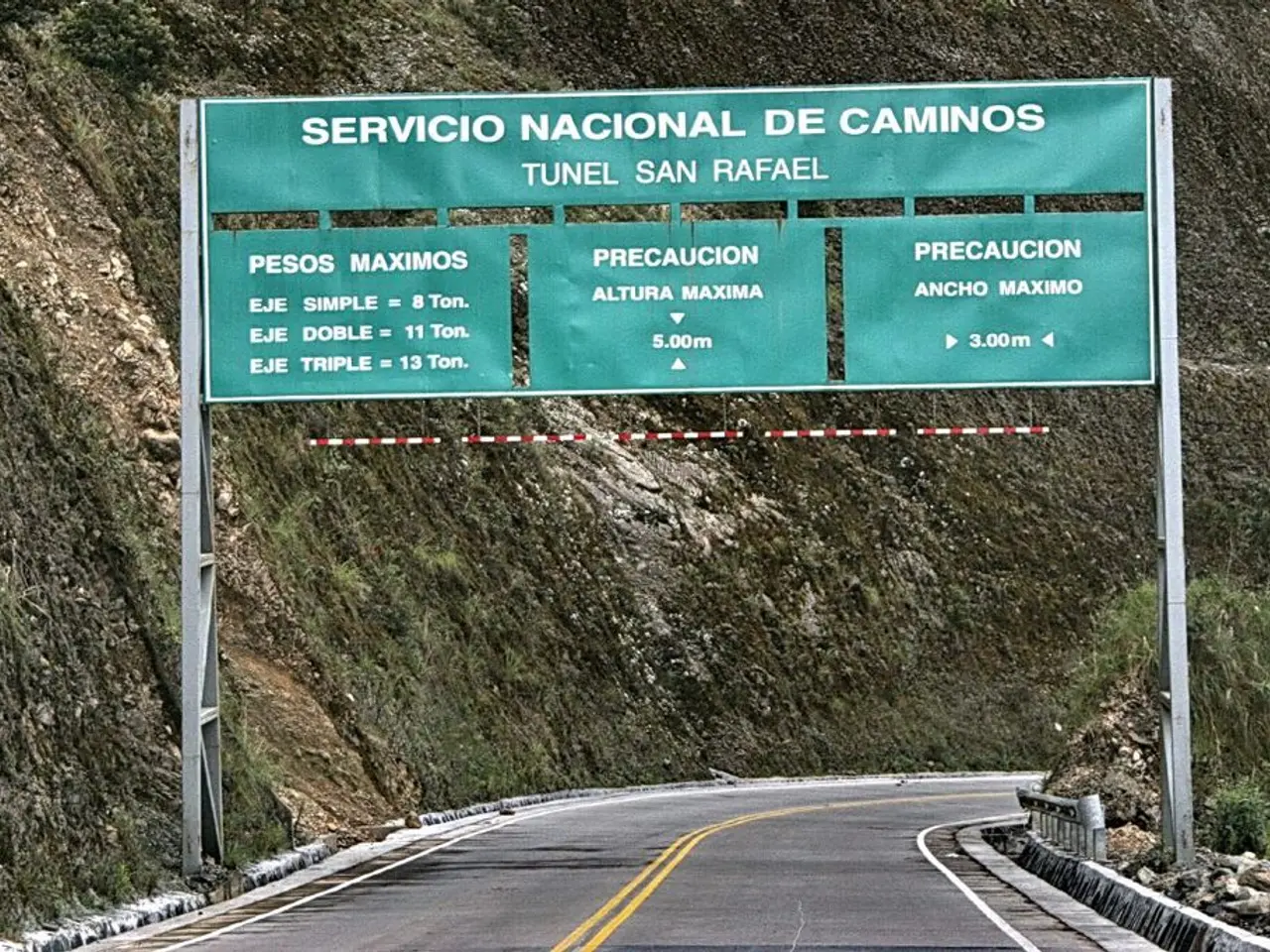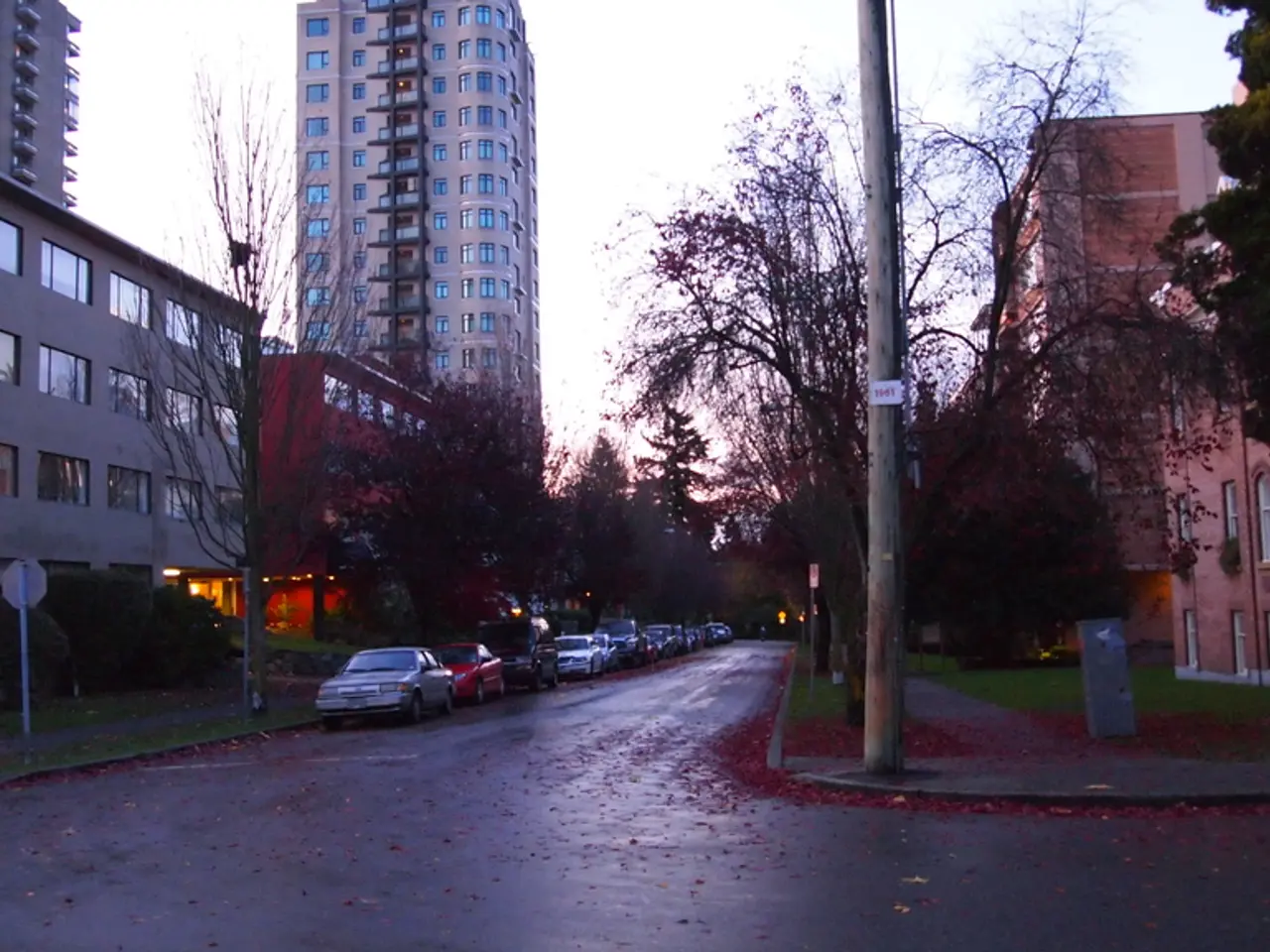Sizzling heatwave engulfs northern parts of Vietnam
In the sweltering heat of August 2025, Hanoi and the Red River Delta region of northern Vietnam experienced a historical heatwave that broke previous records. On Monday, the city's thermometer soared to an unprecedented 40.3°C, surpassing the previous August record of 39.8°C set in 2021 [1][3].
The extreme heat was not limited to Hanoi. Seventeen weather stations across seven provinces reported record-breaking temperatures, including Phu Tho, Tuyen Quang, Lang Son, Bac Ninh, Haiphong, Ninh Binh, and outside Hanoi [1][3][5]. One weather station in downtown Hanoi even recorded a high of 40.3°C, marking the city's hottest-ever August day.
The scorching heat was a shock to many locals. Flower seller Ngo Thu Thuy lamented that her earnings have decreased due to fewer people buying flowers in the heat [2]. Construction worker Nam noted that the increased number of buildings and vehicles has turned Hanoi into a hotter environment over the past two days [2]. Office worker Dang Xuan Huong could not imagine spending the night without air conditioning during these days [2].
The heatwave's intensity was significantly influenced by climate change. Scientists attribute the unusual extreme heat to human-driven climate change, which is causing hotter, more intense, and more frequent heatwaves in Vietnam and globally [1]. The event was the result of an unusual combination of meteorological factors, including a strong western hot low pressure bringing dry, hot air, clear skies with prolonged sunshine, and Foehn winds further drying the air and lowering humidity to 47–52% midday in Hanoi [3].
Northern Vietnam has faced multiple heatwaves recently, including three in July 2025, with average temperatures 0.5–1.5°C above historical norms [2][3]. Such persistence of above-average temperatures fits broader climate change trends leading to more frequent and severe heatwaves in the region [1][2].
The heatwave severely affected daily life and economic activities. High electricity demand due to cooling needs, health risks like heat exhaustion and dehydration, and economic impacts on outdoor workers and small businesses were some of the consequences [1][2]. Vietnam's electricity company EVN reported that consumption in Hanoi hit an all-time record at 1:28 pm (0628 GMT) on Monday [1]. The normally bustling streets of Hanoi were quieter due to the heat, with locals hiding from the sun [2].
However, there is a glimmer of hope. Rain is forecast for Tuesday evening, which is expected to bring cooler temperatures [2]. The streets of Hanoi, once a refuge from the heat, will likely come alive again, offering respite to both locals and tourists alike.
[1] https://www.reuters.com/world/asia-pacific/vietnam-records-hottest-august-day-ever-2025-08-08/ [2] https://www.bbc.com/news/world-asia-58319972 [3] https://www.vnexpress.net/news/science/vietnam-suffers-record-breaking-heatwave-403c-404c-in-hanoi-4220443.html [4] https://www.theguardian.com/world/2025/aug/09/vietnam-suffers-record-breaking-heatwave-as-hanoi-temperature-hits-403c [5] https://www.cnn.com/world/asia/vietnam-heatwave-hanoi-record-8-9-2025/index.html
- The extreme heatwave in Hanoi during August 2025 was linked to human-driven climate change, as scientists have indicated, causing hotter, more frequent, and more intense heatwaves globally.
- Cultural activities, such as selling flowers, have been affected by the harsh climatic conditions in Hanoi, with local vendors like Ngo Thu Thuy experiencing reduced sales due to the increased heat.
- The unprecedented heatwave in August 2025 highlighted the significance of environmental science and our understanding of weather patterns, as the event demonstrated the potential severe consequences of climate change on daily life and economic activities.








